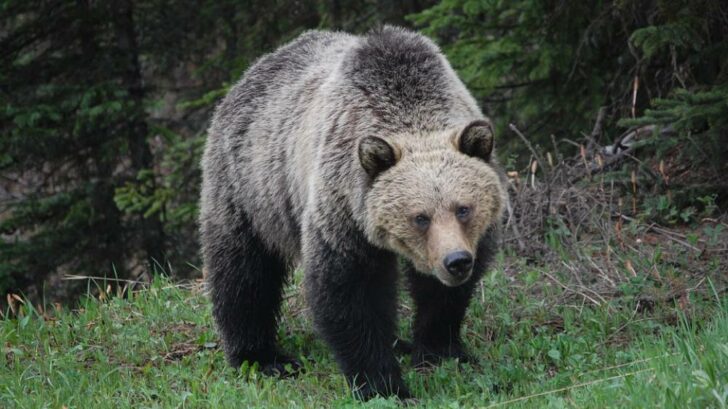Bear-Baiting In London During The Elizabethan Era

The Age Of Bear-Baiting In Elizabethan England
Today, if you head over to 22Bet Casino, you’ll find plenty of sports to bet on. Everything from jackpot poker to roulette and blackjack. But hundreds of years ago, one of the most popular betting sports was bear-baiting. In fact, wagering on the sport kept everyone amused throughout Elizabethan times. Even Shakespeare’s Macbeth says, “Have chained me to a stake; I cannot fly, But, bear-like, I must fight the course,” when speaking to his adversaries in the play. Of course, this popular pastime is of little significance today.
But in the play’s year, 1606, the site of much bloody slaughter, the “Bear Gardens” could be found by taking a short stroll from Shakespeare’s own Globe Theater. In front of raucous crowds of Londoners, many of whom were betting on the outcomes, dogs, bears, bulls, monkeys, and various other creatures had to battle to their bloody death.
Introduction: Bear-Baiting As A Pastime
Four hundred years ago, taking the kids to see “bear baiting” was one of the most fun things you could possibly do. After all, both the theatre and animal blood sports were popular forms of entertainment in the 16th and 17th centuries. You’ll find that many of the bear-baiting arenas in London were located in Southwark’s Bankside neighborhood, which was next to the City of London and on the southern bank of the River Thames. This was theoretically beyond the London municipal city limits, making it a sanctuary for illegal activities like prostitution and gambling.
Bear-Baiting Was A Fun Activity
The so-called “sport” that was most popular was, without a doubt, bear-baiting. This was no surprise, as it had existed since the Middle Ages. For this, the bear was guided into the center of a pit. Then either its neck or its leg was shackled to a spike firmly hammered into the ground. This severely limited the bear’s movements making the work of the dogs slightly easier. Following that, gamblers would place their bear-baiting wagers. We can imagine they may have used 22Bet Casino if they had access to the internet. Then, the fun could begin as packs of savage and aggressive dogs (often bulldogs or mastiffs) were released. They fell on the bear, ripping off ears and lips, as the bear-baiting began in earnest.
Of course, in many cases, the dogs could end up on the wrong side of the bear’s teeth or razor-like claws. However, it was nothing less than exciting and immersive entertainment for all the cheering onlookers involved. As the Elizabethan court official Robert Laneham wrote of a 1575 bear-baiting, “It was a very pleasant sport to see”. He continued, “To see the bear, with his pink eyes, tearing after his enemies’ approach…with biting, with clawing, with roaring, with tossing and tumbling, he would work and wind himself from them.”
In Reality, Bears Were Not Killed

Keep in mind that it was crucial that the bears didn’t perish. This was simply a matter of sensible finances. After all, importing animals from across Europe and Africa was incredibly expensive. Therefore, the competition ended when either a large number of dogs had been killed or the bear had been forced to submit. Unsurprisingly, some of the bears even rose to the status of minor celebrities. These stars of the bear-baiting pit went by the names Ned Whiting, Harry Hunks, and Blind Bess. Shakespeare’s “Merry Wives of Windsor” even made reference to the well-known bear, “Sackerson.”
English royalty loved bear-baiting, with both Queen Elizabeth I and King James being huge fans. The latter presented hugely expensive and over-the-top performances featuring lions and polar bears that were taken from the menagerie at the Tower of London.
Play Slots Online at the 22BET Casino
If It Bleeds, We Can Bait It
But bear baiting was just one aspect of a huge variety of contemporary blood sports. All kinds of animals were slaughtered in the bloody arenas. There were cock fight battles, dog fights, rat fights, and even badger fights. Both the lashing of blind bears and the shackling of monkeys to horses were considered necessary so that baying dogs could pursue them. It also added much greater entertainment value for the onlookers and those making wagers. Whether this served to increase your jackpot winning chances is unknown. As you can imagine, the crowd cheered when bulls tossed the dogs into the air. Keep in mind, that during this period of English culinary history, there was a notion that aggressive fighting would render the meat of the bull more tender and therefore, more palatable.
Bear-Baiting Was Not Popular With The Puritans
In spite of the popularity of bear-baiting, unfortunately, someone always has to sour the mood. You can thank the Puritan clergy of the time for denouncing such displays. Funnily enough, it was not because they were worried about the welfare of the animals. But rather because the viewers were having such fun. Which was essential, like anything that brings you further away from God, a sin. As a result, the bear-baiting arenas were referred to as “dens of idleness and wickedness” by the Puritans. They said that these games promoted prostitution, intoxication, and bear-baiting betting, in addition to other forms of gambling. In truth, they were not wrong.
Nevertheless, for the vast majority of Londoners, this all sounds like a wonderful way to spend a couple of hours over the weekend. So it should come as no surprise that we later sent those God-fearing spoilsports off to America. Interestingly enough, there are still some people today who are set against gambling and jackpot games due to the same religious doctrine.
All Good Things Have To Come To An End
Throughout the 1600s, England’s fixation with blood sports persisted unabated (excuse the pun!). Thankfully so did gambling. Otherwise, we wouldn’t have online casinos like 22Bet Casino to play at today. However, the popularity of bear-baiting gradually declined over the following century as more people became conscious of animal cruelty. Following a Parliamentary Act, all animal baiting and cockfighting were declared illegal in 1835. Even dog racing with greyhounds is being slowly discontinued today. But the “Bear Gardens” and “Bear Lane” may still be found as street names in South London and serve as a reminder of different times. Of course, the canine breed known as “bulldog” also serves as a reminder of England’s bloody history of bear-baiting.
Click here to visit the 22BET Casino to discover a brand new world of online gambling














